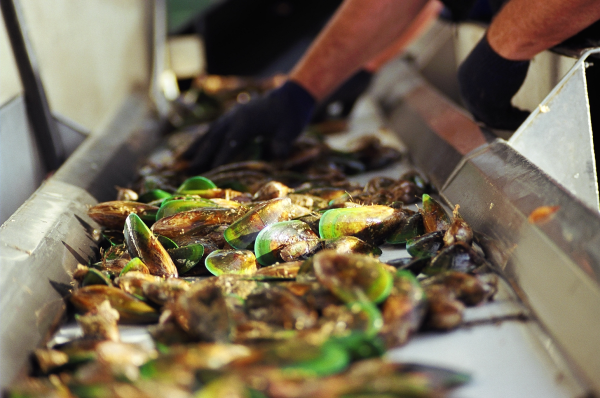Sector Workforce Engagement Programme (SWEP)
Learn how the Sector Workforce Engagement Programme has helped address labour market issues in our regions.
Working strategically with the government levers of immigration, education and welfare, SWEP works to develop the right workforce, in the right place, at the right time.
Learn more about SWEP’s work across New Zealand’s Employment sector.
Aquaculture
 Aquaculture is a significant contributor of regional economies including the Bay of Plenty, Marlborough, Nelson, Otago, Southland, Franklin and Coromandel. Employing approximately 3,000 people, it plays a pivotal role in nurturing these communities, fostering job growth and addressing local employment limitations.
Aquaculture is a significant contributor of regional economies including the Bay of Plenty, Marlborough, Nelson, Otago, Southland, Franklin and Coromandel. Employing approximately 3,000 people, it plays a pivotal role in nurturing these communities, fostering job growth and addressing local employment limitations.
With a goal to become a $3 billion NZ export industry by 2035, Aquaculture is marked for substantial expansion, but will be unable to do so with its current workforce. Forecasts suggest that the sector's workforce must double by 2035 to reach its 2035 goals.
To achieve this, SWEP has been working with the sector’s industry body, Aquaculture New Zealand (AQNZ), since 2022, to implement a comprehensive Workforce Action Plan to provide a strategic framework for workforce planning to address the sector’s current and future workforce needs, prioritise training, create career pathways, provide competitive wages, improve workplace Support, as well as strategizing the attraction and support of overseas talent.
These efforts not only benefit the aquaculture industry, but also serve the interests of Iwi and regional communities.
New Dunedin Hospital build
 The new Dunedin Hospital (NDH) build is a complex project that requires a skilled and ready workforce.
The new Dunedin Hospital (NDH) build is a complex project that requires a skilled and ready workforce.
SWEP has led several skills and employment initiatives for the NDH build, including the preparation of a workforce to lay an estimated 89,000 square metres of vinyl flooring within the hospital between 2025 and 2028.
To accomplish this, SWEP worked together and coordinated the flooring industry, local employers and Building and Construction Industry Training Organisation (BCITO) to create and implement a plan to develop a skilled local workforce of qualified vinyl layers to meet this demand.
This eventuated in a cross-agency and industry ‘Flooring Boost Programme’. The programme was delivered in Dunedin and Invercargill and has seen 13 trainees placed into full time employment, leading to apprenticeships with local flooring contractor firms.
The flooring industry initiative in Dunedin is a success story that will encourage other industries to invest in future labour forces. SWEP continues to work alongside the 2 main build contractors for NDH at aligning the supply and demand of skills moving forward.

